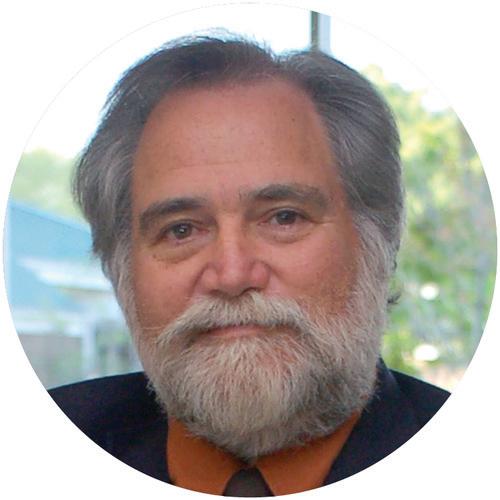
4 minute read
Nothing is Written
Rick Rader, MD, FAAIDD, FAADM - Editor in Chief
ISSUE NO. 1 JUNE 2022
Advertisement
Bringing the Vision to Life OUR NEW JOURNAL:
STATISTICS ON Disability and ABUSE
BRINGING THE VISION TO Life
HowADHD
SLEEPAffects

ENDORSED BY
helenjournal.org • HELEN | 1
It was in the middle of 1663, and one can only imagine the excitement felt by the German theologian and poet Johann Rist the night before his new magazine Erbauliche Monaths-Unterredungen (“Edifying Monthly Discussions”) left the print shop and was brought out to the street to sell. It was a crapshoot for sure. After all, it was the first magazine to be published in the world.
Years later, in 1741, there was a competition to publish America’s first magazine. Two owners of rival newspapers, Andrew Bradford and Benjamin Franklin rushed to publish a magazine and claim the honor. Bradford was the first, with his American Magazine, which was published only three days before Benjamin Franklin published The General Magazine. While both failed within a short time, the idea of publishing magazines was off and running. Today there are currently 7,416 consumer print magazines, thousands more are digital, and thousands more belong to the scientific community in the form of journals.

This quote from T.E. Lawrence implies that nothing is inevitable, life consists of choices, and how the individual can make an impact on his/ her destiny. The disability community continues to reinforce and remind me of this; hence the name for my monthly musings. - Rick Rader, MD, FAAIDD, FAADM
We shared the same excitement, joy, anticipation and pride as Rist, Bradford and Franklin when we conjured up the idea of publishing HELEN: The Journal of Human Exceptionality.
While there are a multitude of magazines in the disability space, HELEN is unique in that it is a forum for the entire disability community. We have experts in all sectors of the community including sensory, neuro-motor, behavioral, mobility, communicative/ expressive, cognitive, learning, and psychiatric, including both acquired and genetic etiologies. And when we say “experts,” we don’t simply mean clinicians; we know “experts” come in many flavors—parents, teachers, caregivers, self-advocates, direct support professionals, behaviorists, assistive technologists, policy makers, dreamers, engineers, artists, geeks, historians, students, family members, ethicists, politicians, reporters, legal eagles and entrepreneurs. And we have them all, ready to share their programs, ideas, beliefs, hunches, experiences, dreams, fears and accomplishments.
Many of our articles will be published by students: medical, dental, allied health, nursing, pharmacy, young legislative staffers, bioengineering, etc., who have not (yet) been beaten up by the land mines, obstacles, naysayers, narrow thinkers and power-brokers that litter the playing field. We expect them to say, “why not?,” “what if,” or “stop doing that.” And they will be as welcome as the Nobel Prize winners that will also be welcomed contributors.
The theme of HELEN is that we see ourselves as partners, collaborators, duets, teams, tribes, pirates and gangs. We will let you know when it’s time to pick up the pitchforks and torches and head for the castle; and also, how to get there after they have raised the drawbridge. We intend to balance, weigh and capitalize on our individual and collective wisdom, imagination, failure, experience, frustrations, evidence, potential and possibilities.
The tag line is “The Journal of Human Exceptionality,” and that will be our North Star. What we see, think, imagine, feel and understand as “exceptional” will guide us in selecting topics, authors, communities, programs, centers of excellence, movements and heroes.
We hope you will join us as readers, subscribers, authors, critics, supporters, and flag wavers.
For the inaugural issue of a journal named HELEN, it’s only fitting for Helen Keller to have the last word:
“The place between your comfort zone and your dream is where life takes place.”
Collaborative Organization Mission Statements
Helen: The Journal of Exceptionality is proud to be endorsed by the nation’s leading organizations that advocate for people with Intellectual and Developmental Disabilities (IDD).
The AADMD is resolved:
To assist in reforming the current system of healthcare so that no person with IDD is left without access to quality health services.
To prepare clinicians to face the unique challenges in caring for people with IDD.
To provide curriculum to newly established IDD training programs in professional schools across the nation.
To increase the body and quality of patient-centered research regarding those with IDD and to involve parents and caregivers in this process.
To create a forum in which healthcare professionals, families and caregivers may exchange experiences and ideas with regard to caring for patients with IDD.
To disseminate specialized information to families in language that is easy to understand.
To establish alliances between visionary advocacy and healthcare organizations for the primary purpose of achieving better healthcare.
It is the purpose of the American Academy of Developmental Dentistry (AADD) to establish postdoctoral curriculum standards for training dental clinicians in the care of patients with IDD, to establish clinical and didactic training materials and programs to promulgate these standards, and through its certifying entity – the American Board of Developmental Dentistry – to grant board-certification to those dentists who have successfully completed these training programs.
The American Academy of Developmental Medicine (AADM) is a medical society dedicated to addressing the complex medical needs of individuals with intellectual and developmental disabilities across the lifespan. It incorporates clinician training and awareness, teaching, advocacy, research, board certification, health equity, interdisciplinary collaboration, inclusive care delivery models and shared decision making.



